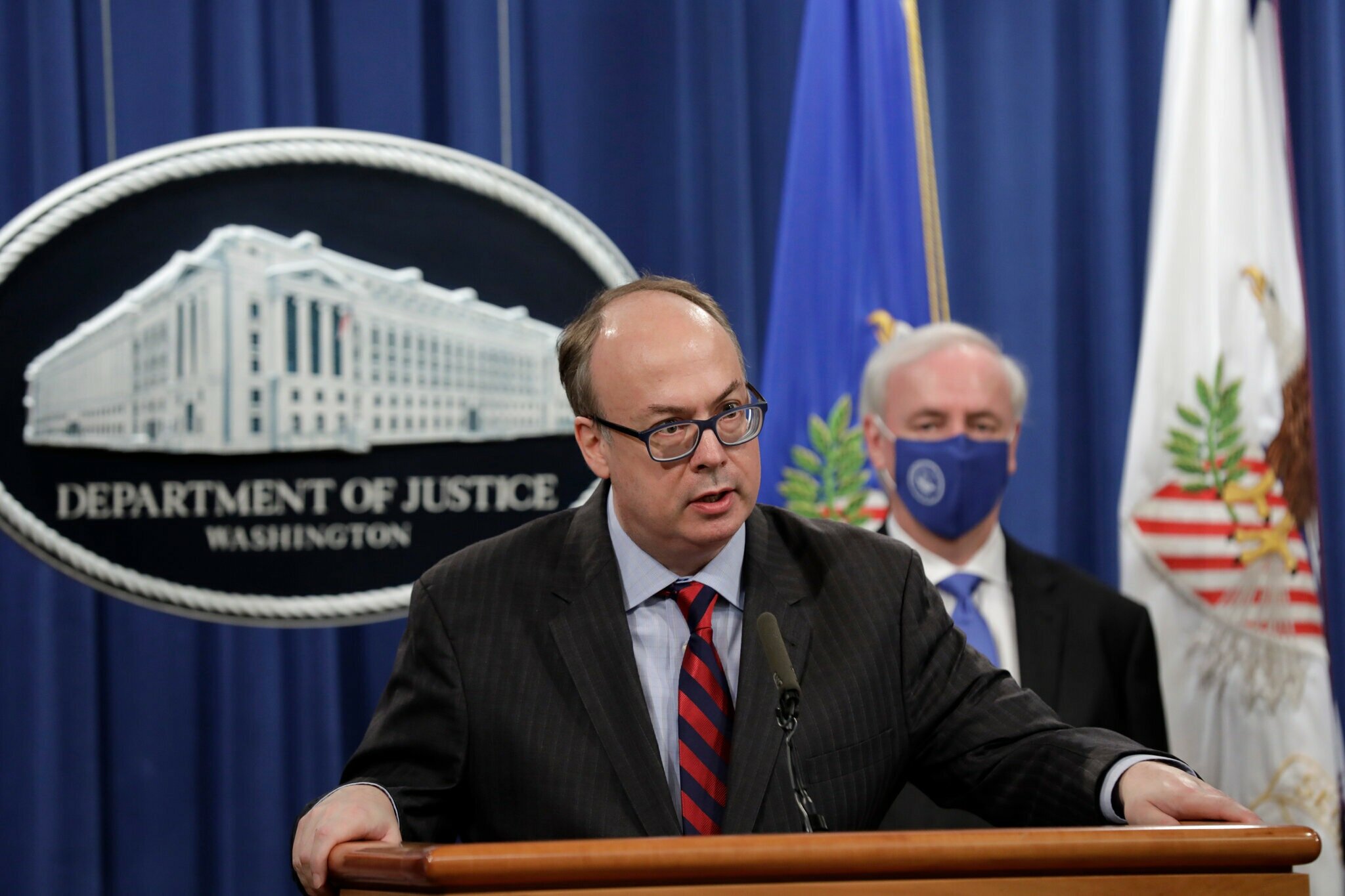WASHINGTON — It was New Year’s Eve, but the Justice Department’s top leaders had little to celebrate as they admonished Jeffrey Clark, the acting head of the civil division, for repeatedly pushing them to help President Donald J. Trump undo his electoral loss.
Huddled in the department’s headquarters, they rebuked him for secretly meeting with Mr. Trump, even as the department had rebuffed the president’s outlandish requests for court filings and special counsels, according to six people with knowledge of the meeting. No official would host a news conference to say that federal fraud investigations cast the results in doubt, they told him. No one would send a letter making such claims to Georgia lawmakers.
When the meeting ended not long before midnight, Acting Attorney General Jeffrey A. Rosen thought the matter had been settled, never suspecting that his subordinate would secretly discuss the plan for the letter with Mr. Trump, and very nearly take Mr. Rosen’s job, as part of a plot with the president to wield the department’s power to try to alter the Georgia election outcome.
It was clear that night, though, that Mr. Clark — with his willingness to entertain conspiracy theories about voting booth hacks and election fraud — was not the establishment lawyer they thought him to be. Some senior department leaders had considered him quiet, hard-working and detail-oriented. Others said they knew nothing about him, so low was his profile. He struck neither his fans in the department nor his detractors as being part of the Trumpist faction of the party, according to interviews.
The department’s senior leaders were shocked when Mr. Clark’s machinations came to light. They have spent recent weeks debating how he came to betray Mr. Rosen, his biggest champion at the department, and what blend of ambition and conviction led him to reject the results of the election and embrace Mr. Trump’s claims, despite all evidence to the contrary, including inside the department itself.
The plot devised by Mr. Clark and Mr. Trump would have ousted Mr. Rosen and used the Justice Department to pressure lawmakers in Georgia to overturn the state’s election results. But Mr. Trump ultimately decided against firing Mr. Rosen after top department leaders pledged to resign en masse.
Mr. Clark declined to comment for this report, but he reiterated his assertion that The New York Times’s account of his conversations with Mr. Trump, first reported on Friday, and his colleagues was inaccurate. He said he could not detail those inaccuracies because of legal privilege issues. And he said all of his official communications “were consistent with law.”
Mr. Clark had spent two years leading the Justice Department’s environmental division, where he was seen as a standard Republican lawyer political appointee — a member of the conservative Federalist Society with a skepticism of rules that cut into corporate profits.
But now, Mr. Clark, 53, has become notorious. A person who has worked closely with Kirkland & Ellis, where Mr. Clark spent most of his career outside two stints in the George W. Bush and Trump Justice Departments, said there appeared to be scant chance that the law firm would rehire him.
Friends and critics alike reject the notion that Mr. Clark is an operator, describing him as “nerdy” and “thoughtful.”
Mr. Frank, who met Mr. Clark when both worked at Kirkland & Ellis in the 1990s and described himself as a Federalist Society member who voted for President Biden, said he was reserving judgment about the incident. Others were more direct.
“This is the first wave of character assassination, of people going after the most effective lawyers in the Trump administration,” said Mandy Gunasekara, who worked with Mr. Clark when she worked at the Environmental Protection Agency in the clean air division and as chief of staff to Andrew R. Wheeler when he was the agency’s administrator. She was struck by the fact that Mr. Clark’s colleagues were so upset and fixated on an event that ultimately did not happen. Mr. Trump, after all, did not replace Mr. Rosen with Mr. Clark or have the Justice Department contact Georgia lawmakers.
She said Mr. Clark was most likely discussing with his colleagues and the president “a range of options,” just as he was known for doing in his work advising her agency.







